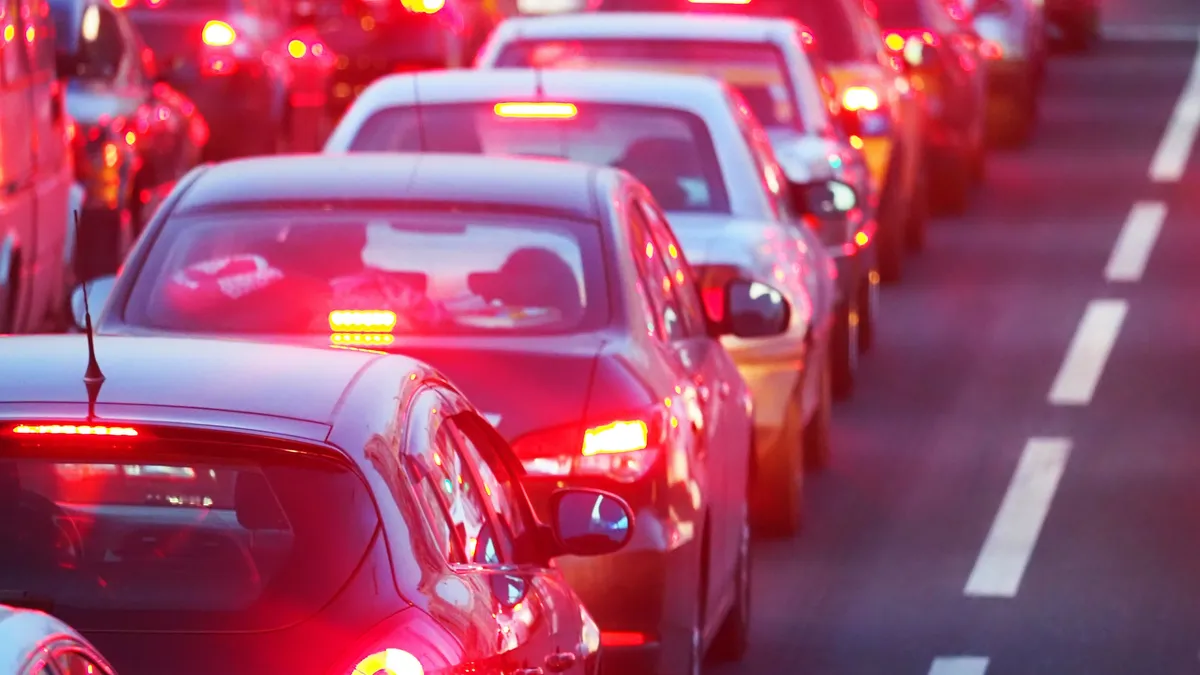Dive Brief:
- The practice of expanding roads or building new ones to curb congestion has resulted in billions of dollars in wasted spending and has made congestion worse on city streets, according to a new report from Transportation for America (T4A).
- The report found that between 1993 and 2017, the United States added 42% more freeway lane-miles in the 100 largest urbanized areas, which was higher than the 32% population growth in those same areas during that time period. T4A found congestion — which it defines as the annual hours of delay traveling at congested rather than free-flowing speeds — went up 144% during that time.
- To remedy that congestion, T4A said transportation authorities and local elected officials should rethink street design and encourage alternatives like walking, biking and transit on a network of connected streets. If people can travel shorter distances to their destinations, they may be more inclined not to drive at all, the report argues. T4A also called for governments to fix existing infrastructure before building new, and to explore congestion pricing as a way to cover the cost of maintenance.
Dive Insight:
Widening and expanding highways to move people around faster has resulted in a failure to reduce congestion. The attempted solution is driven in part by transportation agencies being more comfortable building roads and not wanting to do anything that would involve collaborating on something new, T4A Director Beth Osborne told Smart Cities Dive.
"Part of it is that to do this right requires collaboration by multiple agencies and at multiple levels of government," Osborne said. "And it's always easier just to ignore them and stay the course, do what's within your control."
T4A's calls for maintaining existing infrastructure rather than building new would be a marked change from how many cities handle those investments, while congestion pricing is something that has gained traction in many cities in recent years. New York City is set to be the first to enact such a toll as a way to help fund subway improvements, others are giving their own measures some thought, including Seattle and Los Angeles.
Osborne said transportation planners' focus on moving cars through as quickly as possible has damaged many cities, and that it will take many years and a paradigm shift in thinking to make it right again.
"So many cities used to be beautifully knit together, and as we tried to speed people through or expand to make it possible to address congestion, we cut off a lot of those local trips in order to make the other corridor move quickly," she said.
Political will is required to change things, she said. Copenhagen, Denmark, and Oslo, Norway, highlight how correctly cut congestion can make roads safer, Osborne said. But she said those cities, and the likes of Seattle and Denver that are leaning more heavily into transit, got where they are because of work and policy shifts.
"[When] cities either internationally or in the U.S. are held up as examples of making great change, a lot of the people from outside that community who hear it think, 'Oh, that community was always that way,' which is unfair," Osborne said. "It really fails to credit the people who put a lot of time and creativity and political chips on the table to make the change."












